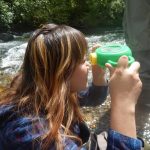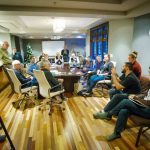Our water stewardship work continues amid COVID-19
It’s been almost six weeks since the national response to the COVID-19 pandemic changed our way of life.
At Living Lakes Canada, we’ve been cautiously optimistic with our plans while adapting physical distancing measures to help prevent community spread. We have switched to online formats where necessary, and postponed some field events in hopes that the water monitoring work and training planned for this summer can still happen given the positive steps B.C. is making in flattening the curve of the virus.
Please find our program modifications below. Thank you to our innovative program managers, support staff and partners for their dedication to water stewardship work amid this global crisis. Protecting Canada’s lakes, rivers, streams, groundwater and wetlands remains as important as ever.
General Operations
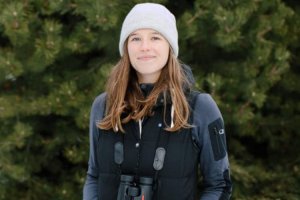 The Living Lakes Canada team is still working diligently to deliver all of our projects during the COVID-19 pandemic. Our team members are all working from home and we stay connected online. All Program Managers have adapted their projects to ensure current physical distancing protocols are adhered to. We are building innovative partnerships and creating online synergies to help diversify and stretch all resources. We are working to stay positive and strong during these vulnerable and unprecedented times. Our priority always has been, and will continue to be, the protection and stewardship of freshwater in Canada. We thank you all for your kind messages and support in our efforts to protect the ecosystems that sustain us.
The Living Lakes Canada team is still working diligently to deliver all of our projects during the COVID-19 pandemic. Our team members are all working from home and we stay connected online. All Program Managers have adapted their projects to ensure current physical distancing protocols are adhered to. We are building innovative partnerships and creating online synergies to help diversify and stretch all resources. We are working to stay positive and strong during these vulnerable and unprecedented times. Our priority always has been, and will continue to be, the protection and stewardship of freshwater in Canada. We thank you all for your kind messages and support in our efforts to protect the ecosystems that sustain us.
~Operations Director Avery Deboer-Smith
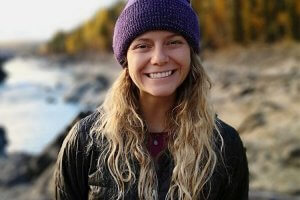 The STREAM program continues to plan for a delayed field season due to COVID-19 and we continue to closely monitor Public Health recommendations. May and June CABIN field certifications have been postponed indefinitely and we have developed distancing field protocols to ensure the health of our staff and partners once we are able to reconvene. Currently, STREAM is still accepting sample submissions. The University of Guelph is closed and therefore samples must be stored in the freezers of participants for the time being. We are working on appropriate outreach and education tools for online platforms and have exciting virtual opportunities in the works — stay tuned!
The STREAM program continues to plan for a delayed field season due to COVID-19 and we continue to closely monitor Public Health recommendations. May and June CABIN field certifications have been postponed indefinitely and we have developed distancing field protocols to ensure the health of our staff and partners once we are able to reconvene. Currently, STREAM is still accepting sample submissions. The University of Guelph is closed and therefore samples must be stored in the freezers of participants for the time being. We are working on appropriate outreach and education tools for online platforms and have exciting virtual opportunities in the works — stay tuned!
~STREAM/CABIN Program Manager Raegan Mallinson
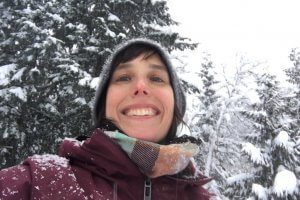 The Kootenay Lake Partnership has been proceeding with training on the Shoreline Guidance Document, from a distance! Over the past decade, the Partnership has compiled archaeological, ecological, shoreline and Ktunaxa cultural values for Kootenay Lake and is working to share this knowledge with stakeholders and communities. In response to physical distancing requirements, we’ve transitioned what would have otherwise been in-person meetings to online webinars. The transition has been relatively smooth, given the available technologies. Online training has been especially effective for learning about the Shoreline Guidance Document interactive webmap, although we’re looking forward to being together again in real life!
The Kootenay Lake Partnership has been proceeding with training on the Shoreline Guidance Document, from a distance! Over the past decade, the Partnership has compiled archaeological, ecological, shoreline and Ktunaxa cultural values for Kootenay Lake and is working to share this knowledge with stakeholders and communities. In response to physical distancing requirements, we’ve transitioned what would have otherwise been in-person meetings to online webinars. The transition has been relatively smooth, given the available technologies. Online training has been especially effective for learning about the Shoreline Guidance Document interactive webmap, although we’re looking forward to being together again in real life!
~KLP Acting Program Coordinator Kristin Aasen
Foreshore Integrated Management Planning
 The Foreshore Integrated Management Planning (FIMP) Team has implemented a number of precautions to help slow the spread of COVID-19. Namely, we’ve implemented a strict physical distancing policy whereby all meetings have been and continue to be held online, project management staff no longer use the Living Lakes office (and instead work from home), and field plans have been cancelled, reduced, or modified. The team is hopeful that our efforts, in combination with the rest of the country’s, will “flatten the curve” so we can all get back to business as usual.
The Foreshore Integrated Management Planning (FIMP) Team has implemented a number of precautions to help slow the spread of COVID-19. Namely, we’ve implemented a strict physical distancing policy whereby all meetings have been and continue to be held online, project management staff no longer use the Living Lakes office (and instead work from home), and field plans have been cancelled, reduced, or modified. The team is hopeful that our efforts, in combination with the rest of the country’s, will “flatten the curve” so we can all get back to business as usual.
~FIMP Acting Program Manager Ryan Cloutier
Columbia Basin Groundwater Monitoring Program
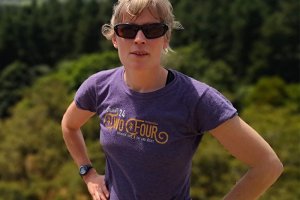 This spring, some of the Groundwater Monitoring Program’s volunteer observation well owners had a fun activity to do while at home! They have been able to download groundwater level data from the wells on their properties using a Bluetooth App on their iOS or Apple device and send us the data. This is citizen science at work! The data show what has happened to water levels over the winter and that the data loggers are working properly. We’re excited to see what will happen to water levels as snow melts and we move into summer. We have had to modify field work plans and are delaying installation of data loggers in some of the newly established Volunteer Observation Wells in order to observe travel and social distancing protocols.
This spring, some of the Groundwater Monitoring Program’s volunteer observation well owners had a fun activity to do while at home! They have been able to download groundwater level data from the wells on their properties using a Bluetooth App on their iOS or Apple device and send us the data. This is citizen science at work! The data show what has happened to water levels over the winter and that the data loggers are working properly. We’re excited to see what will happen to water levels as snow melts and we move into summer. We have had to modify field work plans and are delaying installation of data loggers in some of the newly established Volunteer Observation Wells in order to observe travel and social distancing protocols.
~Groundwater Program Manager Carol Luttmer
Columbia Basin Water Monitoring Collaborative
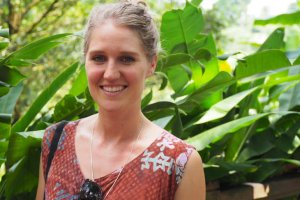 The COVID-19 pandemic has not altered the upcoming launch of the Columbia Basin Water Monitoring Collaborative’s Water Hub, scheduled for May 2020. Education and support surrounding data uploading and use of the Columbia Basin Water Hub will be delivered online in order to adhere to the current physical distancing requirements.. Further information surrounding the program will be released in the coming weeks on our website and social media channels. We are still very much looking forward to supporting monitoring groups within the Columbia Basin and will provide you with updates via our online resources.
The COVID-19 pandemic has not altered the upcoming launch of the Columbia Basin Water Monitoring Collaborative’s Water Hub, scheduled for May 2020. Education and support surrounding data uploading and use of the Columbia Basin Water Hub will be delivered online in order to adhere to the current physical distancing requirements.. Further information surrounding the program will be released in the coming weeks on our website and social media channels. We are still very much looking forward to supporting monitoring groups within the Columbia Basin and will provide you with updates via our online resources.
~Program Coordinator Claire Pollock-Hall




